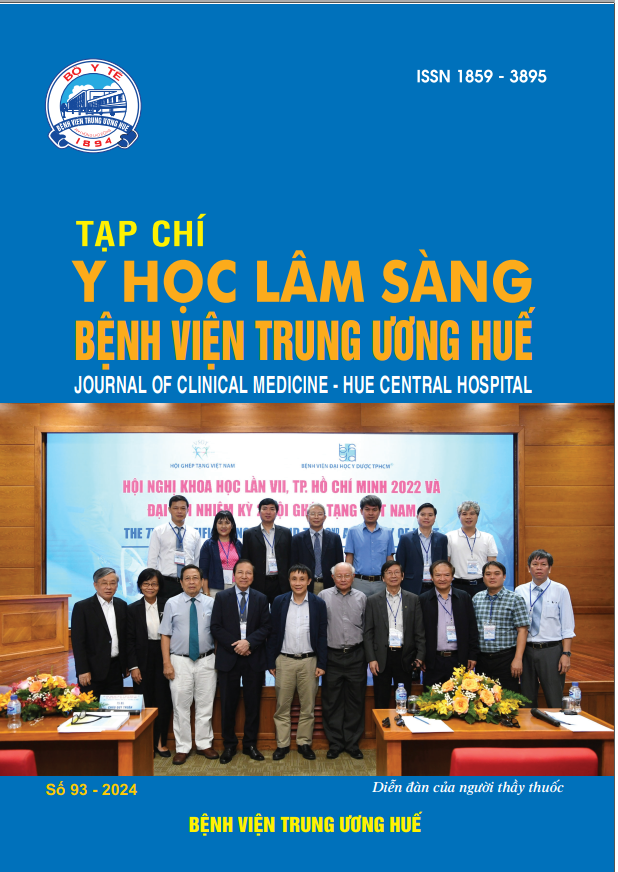Điều trị rò dưỡng chấp sau mổ lấy thận nội soi từ người cho sống để ghép
DOI: 10.38103/jcmhch.93.16
Abstract
Background: If Postoperative chylous leakage not treated properly, they can lead to severe complications such as dehydration, malnutrition, immune dysfunction..., we have 9 cases of postoperative hemorrhagic leakage, from mild to severe cases requiring intervention. We would like to share our treatment experience at the Viet Duc Hospital regarding the issue of managing of chylous leakage after after laparoscopic donor nephrectomy
Methods: A retrospective study was conducted on 167 laparoscopic kidney donors from June 2021 to June 2022. Clinical cases with delayed graft function were described. Study variables included recording information during surgery and post - surgery: age, gender, surgical characteristics, and progression during and after the treatment process. Patients were treated according to a standardized protocol.
Results: Postoperative delayed graft function was diagnosed in 09 cases. This complication was mostly observed on the left side rather than the right (89%). The average time of delayed graft function onset was 2.3 days after surgery. 7 cases were managed with intravenous fluid and dietary adjustments, and their hospital stay was under 10 days. In 2 cases with delayed graft function exceeding 1 liter per day, intervention through vascular access was conducted. Discharge outcomes were stable for all cases.
Conclsusion: Chylous leakage is a rare complication after laparoscopic donor nephrectomy so treated early because it can lead to serious consequences for the patient. Embolise chylous is the ultimate treatment measure for this patient

